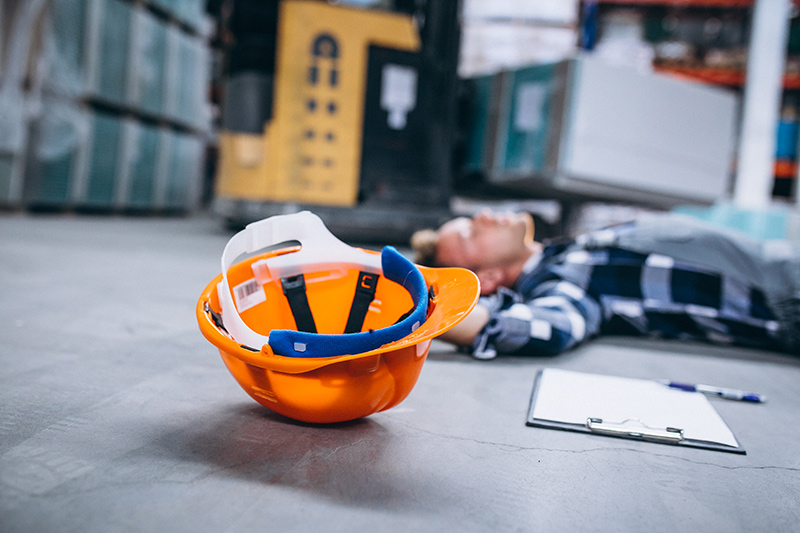Medical records and medical record review are very significant when processing workers’ compensation claims because it is based on the medical facts contained in the medical records that a claim is paid or denied. At all stages of a workers’ compensation case, inadequate medical documentation is the most common reason why claims are delayed or denied. Once an injury or illness is reported to the workers’ compensation insurer, an insurance adjuster reviews the medical records written by the treating doctor to determine whether to pay or deny the claim. Even if a claim is denied at first, if the employee can produce more medical records that contain more evidence supporting the claim, the insurance company may decide to accept the claim. Our topic of discussion in this post is who essential workers are and how medical records and their review are important when processing an COVID-19 essential workers’ compensation claims.
The U.S. Department of Homeland Security defines essential workers as those who perform a range of services and operations that are essential to continue important infrastructure operations. This critical infrastructure could encompass sectors ranging from energy to defense to agriculture.
Frontline essential workers are:
- First responders such as firefighters and police whom people depend on during an emergency
- Healthcare workers comprising doctors, nurses, and other clinicians
- Employees in the food and agriculture sector
- Employees in the manufacturing sector, whose work cannot be done remotely
- Corrections workers, since prisons are closed facilities where the coronavirus can spread quickly
- U.S. postal service workers
- Grocery store workers
- Public transit workers
Other essential workers are:
- Food service employees
- Transportation and logistics
- Finance
- Shelter and housing
- Information technology and communication
- Media
- Energy
- Engineers
- Attorneys and other legal professionals
- Water and wastewater professionals
The above-mentioned categories of workers are at comparatively higher risk of contracting the virus because of the nature of their employment. If they are infected and cannot work, they can file a workers’ compensation claim for the economic support they need. If these workers contracted COVID-19 in the course of their employment and due to the nature of their job, the claim may be paid. Just as for any other work-related illness, medical records and their analysis become important considerations. Medical record review for workers’ compensation focuses on reviewing all the medical evidence available to substantiate the claim.
- Any discrepancies observed between the report filed by the employee at work and the medical records he/she submitted will be considered red flags, and the claim may be considered fraudulent.
- The medical history of the claimant shows whether he/she has any pre-existing health conditions. Typically, workers’ compensation covers only the worsening of a worker’s health condition caused by the work-associated illness or injury, not the worsening caused by a pre-existing medical condition.
- If the review of medical records shows that the claimant has a pre-existing condition that is medically related to, in this regard, the COVID-19 claim, then the benefit they receive could be affected. Pre-existing conditions could worsen work-related illnesses or injuries, and compromise or delay recovery. In such cases, the insurer may not cover some treatment costs.
- Medical chart review for workers’ comp is the basis for determining whether a specific procedure or treatment is medically necessary. To obtain workers’ compensation coverage, medical necessity is a key requirement.
Workers who get infected in the course of their “essential employment” may be entitled to receive workers’ compensation benefits under state workers’ comp law. A medical claim review company assisting workers’ compensation attorneys understands the challenge in getting the claim granted. The employee has to not only prove that he or she got infected with COVID-19 at work, but also that the impairment suffered restricts their bodily function or reduces their ability to work or carry out non-work-related jobs. If the medical records of the employee support their claim, the benefits will be granted for medical treatment, wage benefits, or both.
- To receive payment for medical treatment, the medical records must show the type of treatment the treating physician is recommending.
- Medical documentation must clearly state that the employee needs the treatment to address the medical condition.
- To receive compensation for wages lost, the documentation must show that the employee has a work disability or medical concern that prevents him/her from earning full wages.
- The documentation must establish that the disability is due to a medical issue caused by work.
This shows that medical record review for workers’ compensation is key when processing COVID-19-related essential workers’ comp claims. Attorneys handling such claims often choose to outsource the medical review process to experienced service providers with a view to save time and improve efficiency.




